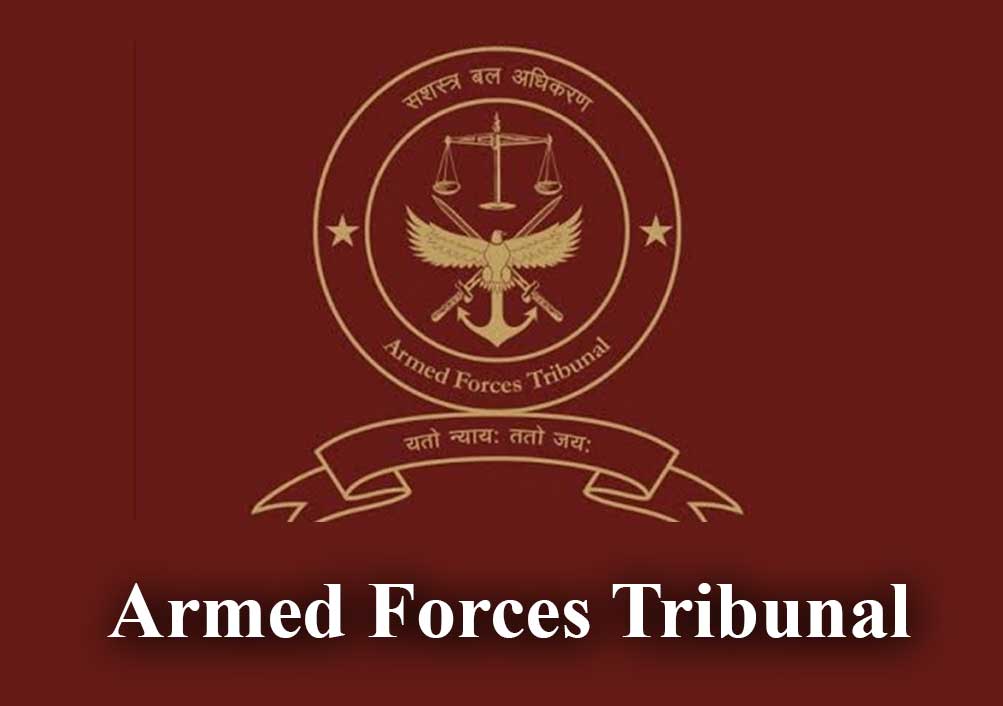Power of High Court under Article 226 of Constitution for judicial review of Armed Forces Tribunal’s Order is not curtailed in any manner: Allahabad HC

Read Order: Ram Harsh vs. Union of India & Others
Pankaj Bajpai
Prayagraj, March 10, 2022: Finding that the aggrieved petitioner, working as a cook in the Indian Army, apart from making generalized and bald statement, did not demonstrate that there existed special circumstances and his physical disability was such that he was not in a position to approach the Apex Court for seeking appropriate relief, the Allahabad High Court has refused to by-pass the statutory alternative remedy provided under the Armed Forces Tribunal Act, 2007.
A Division Bench of Justice Vikram D. Chauhan and Justice Anjani Kumar Mishra however observed that the power of the High Court under Article 226 of the Constitution for judicial review of the order of the Armed Forces Tribunal is not curtailed or restricted in any manner.
Going by the background of the case, Ram Harsh (Petitioner) was enrolled in the Army Medical Corps of the Indian Army on August 6, 1971 and was discharged from service on April 20, 1997, being a deserter. Challenging the same, the petitioner approached the Armed Forces Tribunal, which directed the respondents to pay pension and all other retiral benefits to the petitioner, considering him to be in service up-to August 6, 1991 within a period of three months.
When the respondents did not comply with the said order, the petitioner preferred Execution Application, and in execution proceedings, the authorities concerned handed over the Pension Payment Order and the petitioner was paid pension. Thereafter, the respondent authorities paid all the retiral dues of the petitioner in terms of PPO dated May 26, 2017. The petitioner thereafter approached the Armed Forces Tribunal, Regional Bench, Lucknow, which dismissed the prayer for direction to the respondent authorities to pay interest @ 18% per annum on account of delayed payment of pension and other retiral dues.
After considering the submissions, the High Court noted that that the power of judicial review vested in the High Court under Article 226 and 227 of the Constitution to exercise judicial superintendents over the decision of all Courts and Tribunals within the respective jurisdiction is also a part of the basic structure of the Constitution.
It is to be noted that the powers to be exercised by the High Court under Articles 226 and 227 are constitutional powers and the same cannot be excluded by legislation, and hence, the Armed Forces Tribunal Act cannot curtail the powers under the grand-norm being the Constitution, added the Court.
Speaking for the Bench, Justice Chauhan observed that discretion under Article 226 of the Constitution is to be exercised by objective assessment of the plea of the petitioner that the statutory forum provided under the Armed Forces Tribunal Act is not an efficacious remedy in the facts and circumstances of the case. The Bench was also of the opinion that the power of the High Court under Article 226 of the Constitution for judicial review of the order of the tribunal below is not curtailed or restricted in any manner. The remedy provided under Article 226 of the Constitution is a extraordinary and discretionary remedy.
“The case of the petitioner is that although there is an alternate remedy to approach the Supreme Court under Sections 30 and 31 of the Armed Forces Tribunal Act, 2007 however the petitioner has approached this Court under Article 226 of the Constitution as the remedy provided by way of appeal under Sections 30 and 31 of the aforesaid Act is not efficacious for the petitioner on account of the pitiable condition of the petitioner”, added the Bench.
Justice Chauhan found that the petitioner claimed that he was working as a sepoy (cook) in the Indian Army and further on account of his pitiable condition the remedy of appeal was not an efficacious remedy, and had sought the bypassing of an alternative remedy on the ground that the petitioner was an old person with various age related ailments and complications.
However, if the factual foundation for the cause of action in approaching the court was missing or was vague, then it was always open for the court to deny the relief to the petitioner/litigant in the facts and circumstances of the particular case, added the Bench.
Sign up for our weekly newsletter to stay up to date on our product, events featured blog, special offer and all of the exciting things that take place here at Legitquest.




Add a Comment